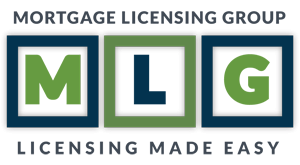Revocation of a Mortgage License Explained
 Mortgage brokers operate in a heavily-regulated environment and often have to pay close attention to federal and state laws in order to maintain compliance. Those who operate in multiple states have an even greater challenge as the states frequently do not have uniform laws and standards.
Mortgage brokers operate in a heavily-regulated environment and often have to pay close attention to federal and state laws in order to maintain compliance. Those who operate in multiple states have an even greater challenge as the states frequently do not have uniform laws and standards.
For this reason, it’s crucial that all mortgage brokers understand what they must do in order to remain compliant. Noncompliance could potentially result in a license suspension or revocation, and since the requirement to hold a state license is universal across the nation, this situation could be a career killer.
There are no federal guidelines for revocation, and states have full discretion in any punitive actions that are taken, including suspension and revocation. While many infractions result in an administrative action/fines only, some that are deemed serious enough could result in an immediate revocation. When an individual fails to keep their license current or operates without a license, legal action can be taken against that individual.
Since the penalties are so high, it’s important to understand situations that may result in a suspension or revocation of your mortgage broker’s license. Since the applicable laws and related penalties may vary from state to state, it’s vital that you also understand your local regulations to prevent noncompliance.
Given that, these are some of the common situations that could lead to license revocation.
1. Violating state mortgage laws.
Obtaining a mortgage brokers license in any state means that you meet the minimum requirements that the state licensing authorities have defined as necessary to operate in this profession. It also means that you have made a commitment to following these regulations and adhering to all applicable laws. A failure to do this can potential results in a suspension or revocation.
The following scenarios represent some of the potential violations that may compel a state to suspend or revoke a mortgage broker license.
- Misrepresenting your qualifications when applying for your mortgage broker license, including any fraudulent documentation that may have been submitted
- Violating any of the applicable mortgage laws in your state(s) of operation
- Failing to meet any continuing education course
- Failure to pay and dues necessary for obtaining or renewing a license
- Failing to distribute any acquired funds in a legal or pre-defined manner
- A conviction for a felony
- A conviction on charges such as fraud, misrepresentation, or deceit
- Failing to file any reports required by the state
2. Non-payment of legally-required payments
In some states, license suspension can occur if the individual fails to make any payments to third parties that have been deemed legally required. This can include child support payments or any payments related to court judgments issued for claims against you in your professional capacity as a mortgage broker. This scenario could also include a creditor who you are legally required to pay.
3. Not meeting your bond requirements.
In order to secure a state license, mortgage brokers must also secure a surety bond. This is frequently done when an initial application is submitted. A surety bond essential serves as a safety net for the licensing agency to ensure that the individual upholds all regulations, laws, and contractual requirements. If the license holder fails to do so, the issuer of the surety bond (often an insurance company) will pay the licensing agency the amount of the claim. The license holder would then be expected to pay the issuer back in the amount of the claim.
Requiring a surety bond acts as a form of protection for the issuing agency and potential customers against any illegal actions that you may commit as a mortgage broker. If this occurs, they have a mechanism for seeking reimbursement for any damages.
In addition to requiring it during an initial application, most states will also need you to submit evidence of your surety bond any time you renew your license. Without this surety bond, a suspension is likely. If it is not dealt with in a timely manner, it could escalate to license revocation.
These three scenarios represent some of the potential instances that could be deemed noncompliant, although state regulations may vary and can include other potential violations.
Per the NMLS Renewals Handbook, licenses that have been revoked are not eligible for renewal. However, those that have been revoked but are on appeal, or have been suspended (either on appeal or not) are eligible for renewal.
It is clear that the best way to avoid any severe consequences, including suspension or revocation of your license, is to have a comprehensive understanding of all of the state laws, regulations, and requirements and maintain compliance with these at all times.
The Mortgage Licensing Group, Inc. is a full-service mortgage licensing firm headquartered in Southern California that is recognized throughout the industry as an experienced and reliable service provider. Established in 2006, our company has been on the forefront of the ever-changing rules and regulations, helping alleviate the often daunting task of meeting the diverse state licensing requirements for our clientele.

